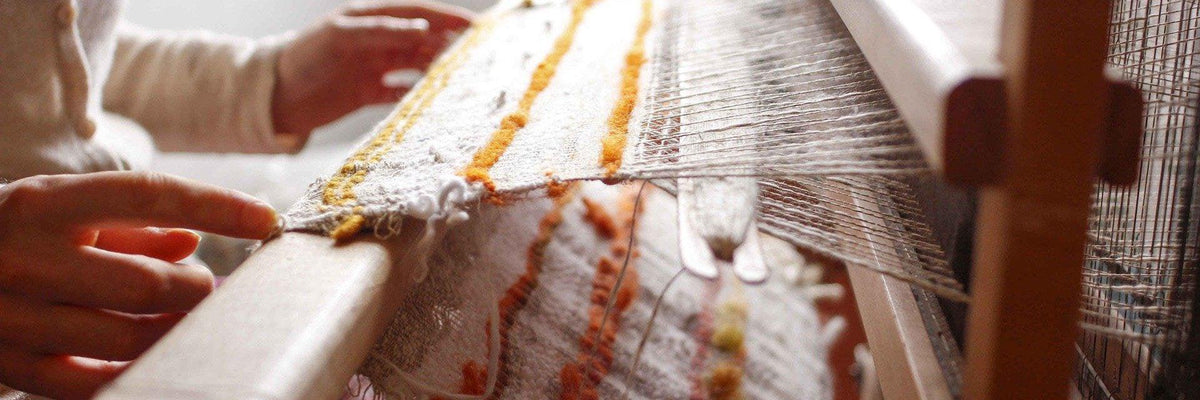Qu’est ce que la slow fashion ?
27 octobre 2020

La slow fashion, qu’est-ce que c’est ?
Aujourd’hui, on vit à mille à l’heure et on consomme toujours plus. On achète autant que l’on jette. On veut toujours plus de nouveautés et si possible à des prix toujours plus attractifs.
Aujourd’hui les marques de haute couture ne produisent plus 2, mais 10 collections à l’année, et les grandes marques sortent une nouvelle collection toutes les deux semaines.
Comment rester à la mode avec une industrie qui produit et se renouvelle plus vite que jamais ? Peut-être faudrait-il prendre un peu de recul et questionner notre mode actuel de consommation.
C’est d’ailleurs en partant de ce constat que prend racine la slow fashion. Concrètement c’est un mouvement qui s’oppose à la fast fashion et à tout cet engrenage de consommation excessive et impulsive.
La slow fashion, littéralement « mode lente », c’est donc avant tout la volonté de consommer de façon responsable en préférant la qualité à la quantité.
C’est acheter une histoire et des engagements de la part d’une marque. C’est aussi lutter contre la consommation incessante de vêtements et d’accessoires de mode, ainsi que les effets néfastes qui vont avec. On parle évidemment ici des conditions de fabrication plus que précaires et inhumaines des travailleurs du textile, de l’impact environnemental énorme dû notamment à la fabrication et au transport des vêtements et accessoires produits toujours plus loin.
Rappelons par ailleurs que l’industrie de la mode est la deuxième industrie la plus polluante au monde, qu’il y a 6 millions de tonnes de déchets vestimentaires chaque année au sein de l’Union Européenne au m2 que ¾ de nos vêtements ne sont pas utilisés. La slow fashion c’est aussi s’opposer à l’uniformisation du style provoqué par mondialisation.
En somme, la slow fashion c’est une manière de penser ou de repenser la société afin de consommer autrement, moins souvent, et surtout de mieux consommer.
En quoi vos culottes menstruelles Elia s’inscrivent dans une démarche de slow Fashion ?
Tout d’abord, la fabrication des culottes Elia. Nous avons une fabrication Origine France Garantie. Ce qui signifie que toute la fabrication de nos culottes se fait en France. Nos culottes menstruelles sont tissées, découpées, assemblées en France. Nous réutilisons même les chutes de nos culottes pour en produire de nouvelles !
Nos culottes de règles sont en coton bio, fibres d’eucalyptus afin de limiter au maximum notre impact sur l’environnement.
Nous produisons notre jolie lingerie menstruelle à la demande pour limiter la surproduction et notre impact sur la nature !
Enfin, vos culottes de règles Elia sont utilisables pendant des années ! Une fois lavées, elles sont comme neuves ! Une aubaine pour l’environnement et pour votre porte monnaie. En effet, nous proposons des culottes menstruelles au juste prix.
Comment passer a la slow fashion ?
Passer a la slow fashion passe surtout par le fait de se poser les bonnes questions avant d’acheter : où a été produit ce vêtement, de quelles matières est-il composé, est-ce que j’en ai réellement besoin ? Ou avant de jeter : est-ce que quelqu’un pourrait en profiter, est-ce que je pourrais l’utiliser pour autre chose ?
La slow fashion c’est aussi trouver des marques qui correspondent à ses valeurs et qui s’engagent elles-mêmes dans une logique moins consumériste et plus transparente en mettant savoir-faire, qualité, impact environnemental et conditions de travail au centre de leurs préoccupations. Cela amène souvent un coût supplémentaire mais acheter de la qualité permet aussi de garder ses vêtements plus longtemps et ainsi de moins consommer.
Une autre option semble se profiler aujourd’hui : la location de vêtements. Que ce soit pour un grand évènement, une petite soirée ou encore des vacances, il est possible de louer des vêtements pour quelques jours. Cela évite d’acheter un vêtement ou un accessoire pour ne le mettre qu’une fois et finir par le jeter.
Il est aussi possible de vendre les vêtements dont on ne se sert plus et donc d’acheter d’occasion. Que ce soit sur Vinted, lors d’une brocante ou dans un magasin vintage, l’achat de vêtements de seconde main est un excellent moyen de trouver chaussure à son pied sans pour autant qu’un nouveau vêtement soit produit.
Il est bien sûr possible de donner, échanger ou recycler pour une autre utilisation, le but est de garder dans sa penderie uniquement des vêtements et accessoires que l’on est sûrs de remettre et qui ont été produit en accord avec nos valeurs.
Bien sûr cela prend du temps et on n’y passe pas du jour au lendemain. Il faut savoir être indulgent avec soi-même, prendre conscience de l’impact de la fast fashion en voulant changer nos habitudes d’achat est déjà un grand pas en avant qui en amène de plus en plus d’effort au quotidien.



Commentaires